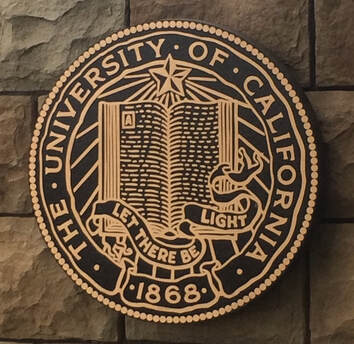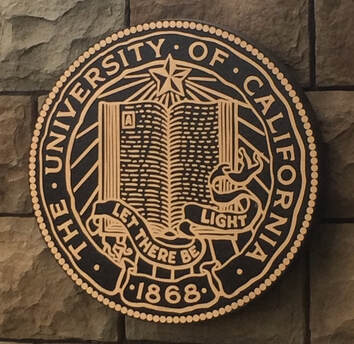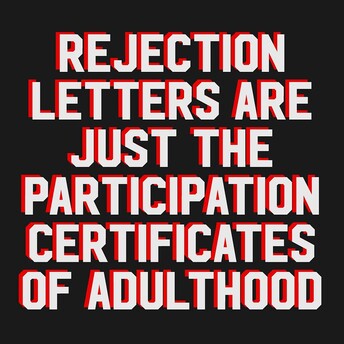 The University of CA released its Admission by Source School data for the class of 2021 (last year's seniors). This is an interactive chart that allows users to look up admissions stats for individual high school students applying to specific UC campuses. You can pull data such as the average GPA of students admitted, percentage of each gender admitted and a breakdown of admitted students by ethnicity. For some high schools, the average GPAs across the board went up significantly while with others it said the same. Click HERE to check it out.  In 2017 the University of California shifted from the traditional personal statement--a more creative essay meant to showcase an applicant's personality, writing abilities, and creativity--to the Personal Insight Questions, commonly referred to as the PIQs. For the past five years, I have attended the UC Counselors Conference session on the PIQs, and the message has remained consistent: these PIQs are not meant to be a personal statement. They are meant to be questions the applicant answers directly, as if they were being asked these questions in an interview. Below are some tips on how to approach the PIQs and some myths dispelled:
 The UC Counselors Conference kicked off today and sessions will take place over a five-day period ending next Wednesday. I will share my insights at the end of the conference, but in the meantime, here are some overall UC announcements and admissions data from each of the campuses. Announcements that apply to all campuses:
Admissions Number/Info by Campus: UC Berkeley 14.5% admit rate 5,876 accepted on the waitlist, and 1,647 admitted off the waitlist 4.25-4.61 was middle 50% GPA Students are admitted by Major and cannot apply to an alternate major. However, if student applies to a competitive major, they will still be reviewed and can be admitted to another major. UC Irvine 29% Admit Rate CA admit rate was just under 20% Average middle 50% GPA not posted Hardly anyone got off the waitlist; UCI was much more popular than they anticipated Students are admitted by major and can select alternate major; Students are recommended to not apply to an "easier" major because switching majors is challenging. UC Merced 87% Admit Rate Average Middle 50% GPA — 3.4-4.0 Average number of Honors courses—11.64 92% of applicants CA residents Students are admitted by major, but major does not factor into decision. Undeclared is the most popular major. UC Santa Barbara Students are admitted by College. These are the admit rates by college: Letters and Science—28% Engineering—17% Creative Studies—13% Average Middle 50% GPA — 4.31 Average Middle GPA by College: Engineering—4.39 Letters and Sciences-4.22 Creative Studies—4.33 UCSB does NOT admit by major within Letters and Sciences UC Davis Admit rate (overall) — 49% Admit rate in College of Letters and Sciences—52.2% Average Middle 50% GPA — 3.95-4.25 Davis admitted more CA residents this year than any other year! Very few students came off the waitlist UCLA Admit Rate — 11% Crazy increase in apps: 139,489 and 15,084 admits Weighted Middle 50% GPA --4.36-4.72 Capped Midde 50% GPA -- 4.17-4.32 Average number of AP/Honors/IB Classes — 19-30 Not active on the waitlist at all! Students admitted by College: No second choice option. Below are Admit Rate by College: Letters and Science—13% Engineering—8% Theater, Film, TV—4% Arts and Architecture—5% Music—20% Nursing—1% UC Riverside 66% Admit Rate Waitlist Offers: 12,162; Opt Ins: 5997; and number admitted from waitlist: 4992 625 Regent Scholar Offers Medium GPA: 3.64 to 4.10 Riverside admits by Major, and will consider alternate major choice. Student MUST consider both. Average GPA by College: Engineering: 3.78-4.17 Arts and Social Sciences: 3.57-4.03 Natural and Ag Sciences: 3.7-4.13 Public Police: 3.6-4.0 Graduate School fo Education: 3.58-3.96 UCSD 34% Admit rate Middle 50% GPA—4.07-4.29 Average honors/AP/IB courses 15.5 San Diego admits by Major. Students can go in undeclared but probably can't declare a capped major like engineering. UC Santa Cruz 58% Admit rate 3.99 Average GPA 19,000 waitlist; 12,000 opted; about 36% received an offer off waitlist Students can apply undeclared but to a cluster so student’s interest is narrowed Student can and should put down alternate major if applying to a popular major like computer science  Being based in Irvine, CA and working with many high achieving students each year, I’m accustomed to having students (and often parents) pushing for highly selective colleges. After all, these students have earned all As in rigorous Honors and AP courses, 4's and 5's on AP tests, and near perfect ACT or SAT scores. One would think these students would be a shoe in for any school they apply to. But the reality is that there are often close to 100 students like that for every spot at the most selective schools. In fact, with test optional policies due to Covid this year, applications skyrocketed at Ivy League colleges: Harvard up 42% Columbia up 51% Dartmouth up 33% Yale and Penn up 33% Brown up 27% Princeton up 15% And these increases were not just limited to the Ivys. Other selective colleges saw similar upticks: Duke up 24% Rice up 26% Amherst up 43% Emory up 19% Colby up 13% Tufts up 35% And so on . . . Since the majority of students who apply have GPAs well over 4.0, are involved in extracurricular activities, have shown leadership, are engaged in meaningful community service, etc., the question becomes: WHO GETS IN? The ANSWER is that students who are competitive for these schools typically have all that is listed above AND have some HOOK that makes them stand out. It could be any of the following: *Recruited athlete *Talent (music, performing arts, visual arts, etc.) Selective schools often accept an optional arts supplement for students to showcase a talent. These supplements are typically sent to the faculty of that arts department for review, and colleges caution that students must be exceptional for this supplement to have an impact. *National/International Award Winner (Robotics, Debate, Poetry, Foreign Language, Math, etc.) *Entrepreneurial Accomplishment Created something that has produced results and elevated the community or a particular group within the community. The student has started a foundation or company, created a product, jump started a social justice movement, etc. *Exceptional Intellect Student has filed and received a patent, created an original code, designed a successful app, written an and published an award-winning book, etc. *Endured Tremendous Hardship & Persevered Student experienced homelessness, suffered the loss of parents, faced an extraordinary medical challenge, came from a war-torn country, etc. Most important for this to have an impact is that the student experienced this hardship and overcame it with success. *First Generation Student: Student is the first in their family to go to college *Connections Legacy, Large Donor, Child of Politician/Celebrity, etc. WITHOUT one or more of these hooks, the chances are slim to none. That is just the reality, and I seek to be transparent with my clients. I have these conversations every year, and I spend a great deal of time encouraging students/parents to be open to and excited about the favorable and target schools on their list. After all, those are the colleges they are most likely to get into. Applying to more reach schools doesn't make their chances better. Since most of my students intend to pursue graduate school, I believe that finding the school where they can be a big fish will ultimately make them most competitive for those grad schools. Grad schools look for students who engage in undergraduate research, pursue internships, create meaningful relationships with professors. Highly motivated students can seek and capitalize on those opportunities in a less competitive environment. Malcolm Gladwell addresses this very point in a Google talk he gave back in 2013: https://www.youtube.com/watch?v=3UEwbRWFZVc I know how disheartening this reality can be. After all, these students applying to selective schools have done everything right. They have earned excellent grades, taken rigorous classes, got involved in meaningful activities, shown leadership, and on and on. I also know from experience that regardless of the odds, students will still pursue these selective schools and will most likely receive much rejection. And for many, this will be the first time they have experienced rejection. Given that, it's important to note that how students and parents react to this rejection can ultimately shape how successful that student's college experience will be. Lori Gottleib’s 2019 article in The Atlantic offers some excellent insight and suggestions as to how parents should react when their child doesn’t get into their dream school. https://bit.ly/39UIg3U It is well worth the read, as she offers guidance for parents to give their kids key messages that have "the potential to either prepare them for adulthood or hold them back.” SAT and ACT UpdateUC will not consider SAT or ACT test scores when making admissions decisions or awarding Regents and Chancellor’s scholarships. If students choose to submit test scores as part of their application, they may be used to determine eligibility for the California statewide admissions guarantee, as an alternative method of fulfilling minimum requirements for eligibility or for course placement after they enroll. UC's Encourage Students To . . .
Want To Learn More About a Particular UC Campus?Each UC campus provides an array of opportunities and methods for students and counselors to engage with admissions staff and with the campus. Below are links to each campus webpage providing information on virtual events and programs.
UC Berkeley UC Davis UC Irvine UCLA UC Merced UC Riverside UC San Diego UC Santa Barbara UC Santa Cruz |
